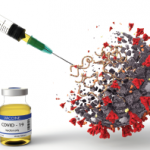
rzstudio / shutterstock.com
“Wait. I can explain.”
One could imagine this phrase coming up under many conditions in daily life. When I first became a physician, however, I would never have expected to use this phrase in my clinic.
In medical school, I was taught the importance of dialogue in establishing a relationship with a patient. Statistics indicate physicians allow patients to speak for only a few minutes before being interrupted. This leaves the patient with the impression that he or she has not been heard. For physicians, the process of gathering the history of present illness is pragmatic. It is goal directed. For patients, however, the goal is the process. It is an unburdening, a medical confession of past sins and future worries that needs time, and moments of silence, to be allowed to breathe.
When it comes time to lay out a treatment plan, however, the dialogue transforms into a monologue. “Let me go first,” I say. “Give me a chance to go through everything. Then, when I am finished, you can ask your questions.”
I am sure my clinical skills preceptor would be horrified, but I developed this system after years of watching the horrified expressions on my patient’s faces when they heard what I was recommending. Cytotoxic agents. Repurposed cancer medications. Hemorrhagic cystitis. Progressive multifocal leukoencephalopathy. Anemia. Liver failure. The list goes on.
So I developed a different approach. Wait, I can explain. This is the drug I want to use. These are the awful things you will read about this drug on the Internet. This is why I don’t want you to worry. Like the feedback sandwiches we are taught to deliver to trainees, I try to end on a high note, emphasizing why the bad isn’t all that bad and why the plan is the plan.
I use the same approach when I sell patients on glucosamine and chondroitin sulfate.
Wait. I can explain. I know there are multiple, well-designed, clinical trials demonstrating that glucosamine and chondroitin sulfate don’t work for the treatment of osteoarthritis. They are not disease modifying.
And yet, years ago, I attended a lecture on psoriatic arthritis. I no longer remember the name of the speaker, but he mentioned that not only had he studied psoriatic arthritis, but he was also afflicted with the disease. He also mentioned that he took glucosamine and chondroitin sulfate, and he wanted all of us to stop telling him it didn’t work. Because it did, at least for him, and he was tired of his colleagues telling him otherwise.


